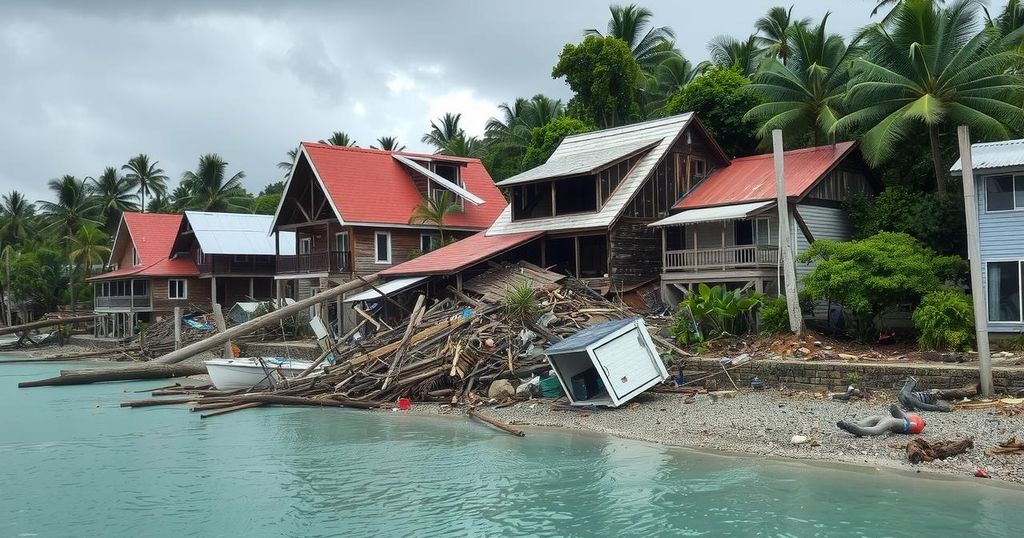High Death Toll Feared in Mayotte Following Devastating Cyclone Chido

Cyclone Chido has wreaked havoc in Mayotte, leaving at least 11 dead and many injured. The cyclone has destroyed much of the infrastructure, prompting emergency measures and international aid. A lockdown was enforced for residents as the territory’s healthcare and essential services faced significant challenges. The storm has also raised concerns about climate change’s role in increasing storm severity.
Concerns are escalating regarding a potential high death toll in Mayotte, a French overseas territory, following the devastation wrought by Cyclone Chido over the weekend. French Interior Minister Bruno Retailleau confirmed that at least 11 fatalities have been reported, contrasting with an earlier provisional estimate from local authorities indicating 14 deaths. Complicating rescue efforts, critical infrastructure such as airports and electricity networks has suffered extensive damage, prompting the need for emergency personnel and supplies from the mainland. The cyclone’s impact was severe, with gusts exceeding 226 kilometers per hour reported, leading to widespread destruction of homes and essential services across the islands.
In the wake of the cyclone, a lockdown was enforced for the 320,000 residents of Mayotte. It was noted that significant portions of the population, especially those in shantytowns, experienced total loss of housing. With reports of critical injuries—nine people listed as such in hospitals and over 240 others injured—the urgency for medical aid is paramount. Reinforcement measures include the deployment of an additional 160 soldiers and firefighters, increasing the total emergency workforce on the ground.
Cyclone Chido, which has since made landfall in Mozambique, has also affected neighboring islands like Comoros and Madagascar. UNICEF has mobilized its resources to assist those impacted, as the storm’s fallout has been described as comparable to prior significant cyclones. Experts attribute the increased frequency and intensity of such storms to climate change, highlighting the anomalously warm waters of the Indian Ocean as a contributing factor. The United Nations Office for the Coordination of Humanitarian Affairs has forewarned of the cascading effects of Cyclone Chido, predicting additional rainfall and potential flooding in Malawi and parts of southern Africa.
Cyclone Chido, a demonstration of increasing climatic extremes influenced by climate change, recently struck Mayotte, a French territory in the Indian Ocean. In an alarming trend, meteorologists and environmental experts warn that storms of this nature are becoming more frequent and intense due to higher ocean temperatures. The ramifications of such weather events extend beyond immediate devastation, affecting infrastructure, health services, and the livelihoods of local populations.
The aftermath of Cyclone Chido in Mayotte underscores the urgent need for disaster preparedness in the face of climate-induced extreme weather events. With a death toll that may continue to rise and critical infrastructure compromised, local and international aid efforts are vital for recovery. Ensuring swift access to medical care, basic utilities, and emergency supplies will be paramount as the region navigates the recovery process from this unprecedented setback.
Original Source: www.lemonde.fr








